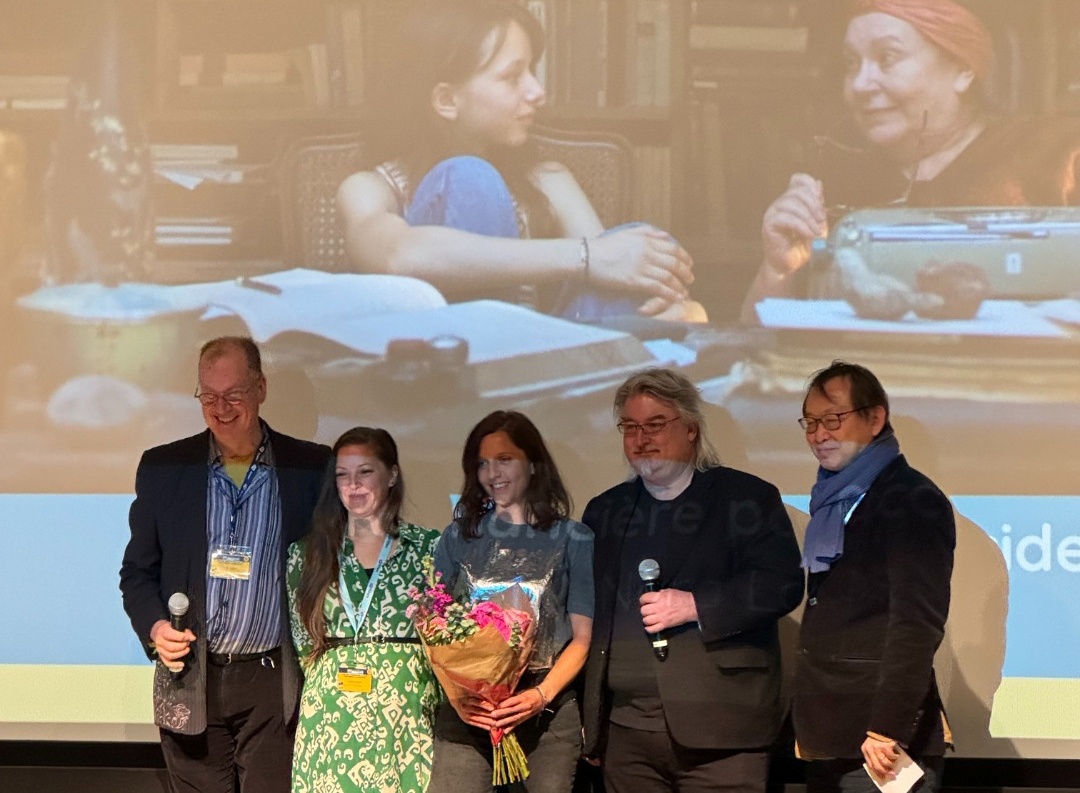
The festival's jury highlighted the creativity of the direction and the strong performance of the lead actress.Continue reading

László Csáki’s Pelikan Blue won the “AniMovie” award for the best animated feature at the 32nd Stuttgart International Festival of Animated Film on Saturday evening, the National Film Institute, sponsor of the production, told MTI.
According to the statement, some 500 films were screened at Germany’s biggest animation festival that took place between May 6-11. The first Hungarian animated documentary film Pelikan Blue is a humorous, nostalgic tale of freedom and three good friends who forged international train tickets in the 1990s, using blue indigo paper. The film deals with a train ticket forgery scandal of the 1990s in an entertaining way, with elements of system criticism and heist film. The production is full of Hungarian hits from the era.
“This film – which cleverly mixes animation and documentary – made us discover Hungary on a personal but also on a broader social and historical level. This felt both dynamic and contemporary.
We were guided through the film by distinct and engaging characters, who seduced us and made us complicit in their attempt to find freedom. All this was wrapped up in vibrant sound and visual design, which made the whole experience fun and entertaining,”
reads the jury’s statement.
The Hungarian animated documentary film had its world premiere at the Tallinn Black Nights Film Festival and has since been invited to several major international screenings, including the Annecy International Animation Film Festival, the Silk Road International Film Festival in China, Hot Docs in Toronto, Canada, and the Transilvania International Film Festival in Romania.
As reported by Hungary Today, Pelikan Blue won the Golden Dove Award for the best feature-length animated film at the 67th DOK Leipzig Festival in Germany last year. “While we do not think that forging tickets is the best way to make dreams come true, we appreciated the way the story is told, the visual language, and above all the light-hearted personal and historical honesty that the film conveys,” said the Leipzig festival jury.
The film was produced by Ádám Felszeghy and Miklós Kázmér. The cinematographer is Árpád Horváth, the editor is Dániel Szabó, and composers are Ambrus Tövisházi and Miklós Preiszner. It was made with the support of the National Film Institute, produced by Umbrella Entertainment with the professional support of Temple Réka and co-produced by Cinemon Entertainment.
Via MTI, itfs.de; Featured image: Facebook/Nemzeti Filmintézet